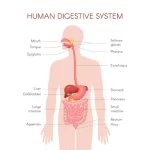
Overview of the Digestive Tract
The digestive system is a complex network, and digestive disorders can affect any part of it.

Aging of the Digestive Tract
As you get into your older adult years, the likelihood increases that you will develop a digestive disorder.

Tests for Examining the Upper Digestive Tract
Doctors may use several tests to figure out where your digestive tract symptoms are coming from.

Dysphagia Disorder: Difficulty Swallowing
Dysphagia disorder is difficulty swallowing, and it can occur in two ways.
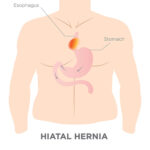
Hiatal Hernia Digestive Tract Disorder and
Other Hernias
Hiatal hernias are common in older adults and may cause acid reflux. Learn about other types of hernias and how to manage them and when to seek treatment.
Other Hernias
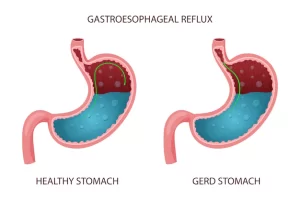
Overview of Gastroesophageal Reflux Disease
Learn about gastroesophageal reflux disease (GERD), symptoms, and treatment.

Esophageal Motility Disorders
What are esophageal motility disorders and how do they impact digestion?

Esophageal Stricture Digestive Disorder
Learn the causes, symptoms, and treatments of esophageal stricture.
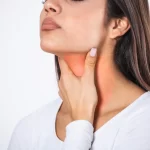
Barrett's Esophagus Disorder
Chronic and uncontrolled GERD can cause Barrett’s esophagus, which increases cancer risk.

Gastritis Digestive Disorder
Gastritis is the inflammation of the stomach lining, often caused by infections or medication.
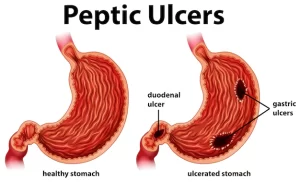
Peptic Ulcer Disease Overview
Here's an overview of the causes and symptoms of ulcers in the stomach and duodenum.

Treatment of Peptic Ulcer Disease
Learn about treatment options for peptic ulcer disease and how these types of ulcers are most effectively healed.
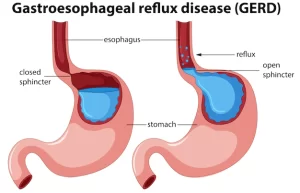
Treatment of Gastroesophageal Reflux Disease
Treating gastroesophageal reflux disease (GERD) is very important, because there could be serious complications if left untreated.

Surgery Versus Drugs for GERD
When it comes to drugs or surgery for treating GERD, is one better than the other?

Risk of Infection with Endoscopy Procedure
Learn about the infection risks of endoscopic tests.

Health Risks of Proton Pump Inhibitors
Are proton pump inhibitors (PPIs) healthy or harmful and what are their side effects?

Gastrointestinal Bleeding Risks Associated with Aspirin
Aspirin may put you at risk of stomach and intestinal bleeding.
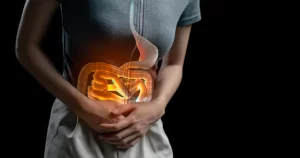
Antidepressant Use for Treating Functional Dyspepsia
Can antidepressants help patients gain back weight?
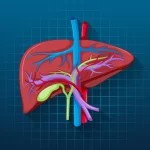
Anatomy of the Liver, Gallbladder, and Pancreas
The liver, gallbladder, and pancreas are key organs that aid the GI tract in the digestion of food.
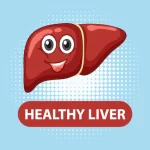
How to Keep Your Liver Healthy
Here are general guidelines for maintaining a healthy liver.
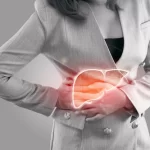
Overview of Hepatitis
Hepatitis is a liver disorder that can be caused by many things and damages the liver.
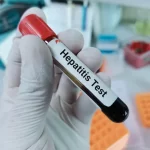
Viral Hepatitis: Symptoms, Diagnosis, and Treatment
Here's the rundown on hepatitis A, hepatitis B, hepatitis C, hepatitis D, and hepatitis E.
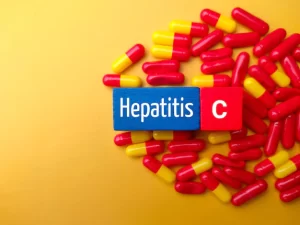
Getting Tested for Hepatitis C
Who should get tested for Hepatitis C?
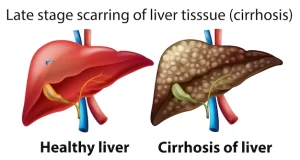
Cirrhosis: Symptoms, Diagnosis, and Treatment
What is cirrhosis and how is it treated?
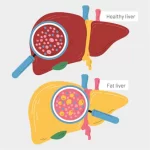
Nonalcoholic Fatty Liver Disease
You may already know that heavy alcohol use can lead to fatty liver disease, but you can drink little or no alcohol and still develop fatty liver disease.

Liver Cancer Risk Reductions
Learn about the ways you can prevent liver cancer.
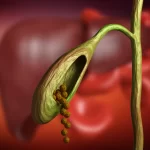
Gallstones: Causes, Symptoms, Diagnosis, and Treatment
Learn the causes, symptoms, and treatment of gallstones—small, pebble-like substances that form in the gallbladder.
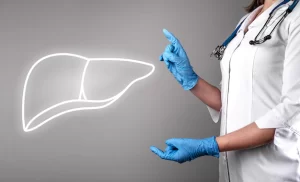
Surgical Options for Gallbladder Disease
There are many different surgical and nonsurgical options to treat gallbladder disease. Which one is right for you?
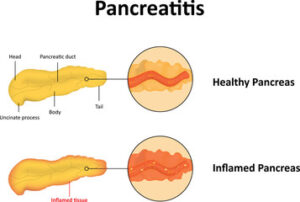
Pancreatitis: Causes, Symptoms, Diagnosis, and Treatment
What is pancreatitis, and how is it caused?
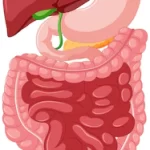
Anatomy of the Lower Digestive Tract
Learn all you need to know about the lower digestive tract.
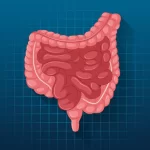
Tests for Examining the Lower Digestive Tract
Learn about the different types of tests used to look at the lower digestive tract.
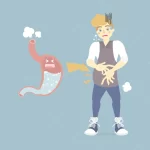
Holding in Intestinal Gas
Holding in gas may cause bloating, indigestion, and even pain. Doctors’ advise just letting it go.

Constipation: Causes, Symptoms, and Diagnosis
Nearly everyone has been constipated at some point, and while it is not a disease, it is a symptom of many medical conditions.

Treatment of Constipation
There are many different treatment options for chronic constipation.
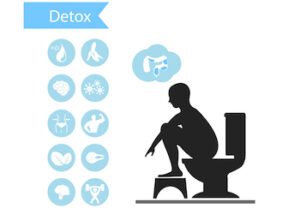
Colonic Irrigation: Why it is a Bad Idea
Learn why the urge to purge is a bad idea.

Diverticulosis and Diverticulitis: Causes, Symptoms,
Diagnosis, and Treatment
Learn about diverticulosis, or small pouches in the large intestine, and diverticulitis that impacts 10%-25% of people with diverticulosis.
Diagnosis, and Treatment
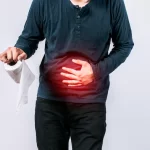
Diarrhea: Causes, Symptoms, Diagnosis, and Treatment
Diarrhea is a common health problem that causes loose, watery stools. Learn what causes it, how it is treated, and how you can manage it.
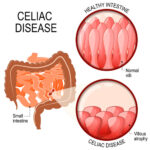
Celiac Disease: Causes, Risk Factors, Screening,
and Diagnosis
Celiac disease is an autoimmune disease that is characterized by an immune response to gluten, a component of wheat and other grains.
and Diagnosis

Treatment of Celiac Disease
Treatment of celiac disease involves following a gluten-free diet.

Conditions that Recommend a Gluten-Free Diet
Who should follow a gluten-free diet? It’s not just for people with celiac disease.
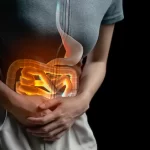
Inflammatory Bowel Disease and Risk for Clostridium
Difficile Recurrence
What is the link between Clostridium difficile and inflammatory bowel disease?
Difficile Recurrence
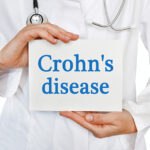
Crohn's Disease: Causes, Symptoms, and Diagnosis
Learn about Crohn’s disease, a chronic inflammatory disorder.

Treatment of Crohn's Disease
Although there is no complete cure, there are many available treatments for Crohn’s disease and its symptoms.
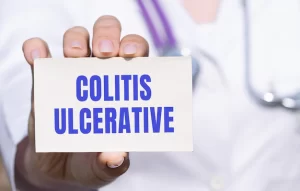
Ulcerative Colitis: Causes, Symptoms, Diagnosis,
and Treatment
Ulcerative Colitis is an inflammatory disease of the rectum and large intestine.
and Treatment
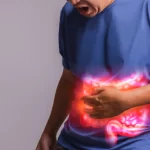
Irritable Bowel Syndrome: Causes, Symptoms,
and Diagnosis
Irritable bowel syndrome (IBS) is a common but misunderstood digestive disorder. Learn more about the causes and symptoms of IBS including constipation and diarrhea.
and Diagnosis

Treatment of Irritable Bowel Syndrome
There are many treatments, both medical and behavioral, that can help with Irritable Bowel Syndrome (IBS) symptoms, like constipation and diarrhea.
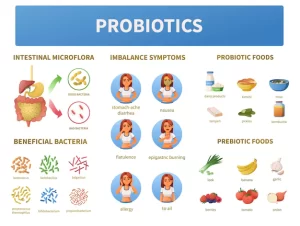
Probiotics: Pros and Cons
Will the “friendly” bacteria in these supplements and foods keep you healthy? Here is what the evidence says.
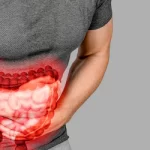
Challenges of Living with Irritable Bowel Syndrome
A survey finds that IBS patients experience abdominal pain, constipation, diarrhea, and other symptoms that can wreak havoc with their day-to-day lives.

Hemorrhoids: Causes, Symptoms, Diagnosis,
and Treatment
Hemorrhoids are painful and itchy clusters of swollen veins that can be either inside or outside the anus and rectum.
and Treatment

Anal Fissure: Causes, Symptoms, Diagnosis, and Treatment
Anal fissures are a painful tear in the skin that lines the anal canal.

Fecal Incontinence: Causes, Symptoms, and Diagnosis
Fecal incontinence, the involuntary loss of bowel control, is a common problem in older adults that can lead to embarrassment. Luckily, it’s often treatable.

The Treatment of Fecal Incontinence
Fecal incontinence can be an embarrassing problem, but there are many ways to treat it.
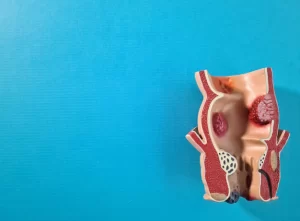
Colorectal Polyps: Causes, Symptoms, Diagnosis,
and Treatment
Colorectal polyps are small and often not serious and can be detected through a colonoscopy. They are easily treated prior to becoming large polyps, which may progress into colorectal (colon) cancer.
and Treatment
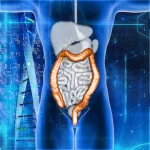
Colorectal Cancer: Causes, Symptoms, Screening,
Diagnosis, and Treatment
Colorectal cancer, or colon cancer, is deadly, but it can often be prevented through regular screening, like a colonoscopy.
Diagnosis, and Treatment
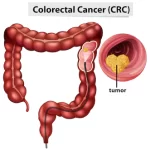
Colorectal Cancer Screening
Studies show that colorectal cancer can be cured or even prevented if it is discovered early.

Alternatives to Colonoscopy for Colorectal Cancer
Screening
If you don’t want to do a colonoscopy to screen for colon cancer, there are less invasive options.
Screening

Colorectal Cancer in Men
Undergo colon cancer screening and get a colonoscopy, it can save your life.

Colorectal Cancer Risk Reductions
Here's how to reduce your risk of colorectal cancer.

Folate and Colorectal Cancer
The research behind folate and colorectal cancer remains mixed.

The Gastrointestinal Bleeding Risk Associated with
Aspirin Use for Heart Disease and Colorectal Cancer
Weighing the risks and benefits of taking aspirin as prevention for heart disease, heart attack, and colon cancer.
Aspirin Use for Heart Disease and Colorectal Cancer

